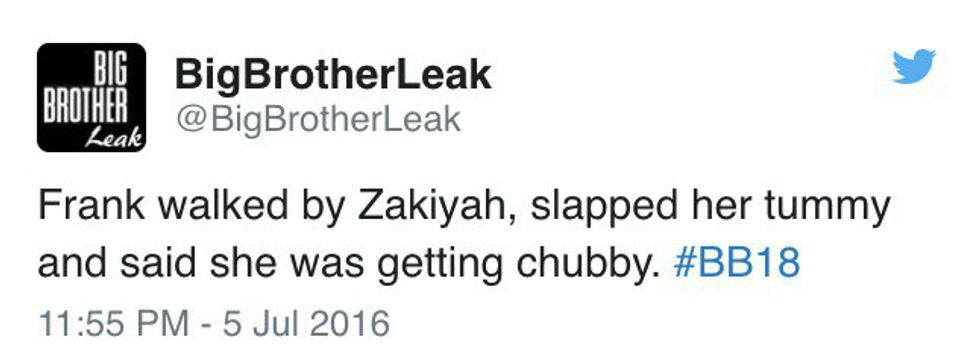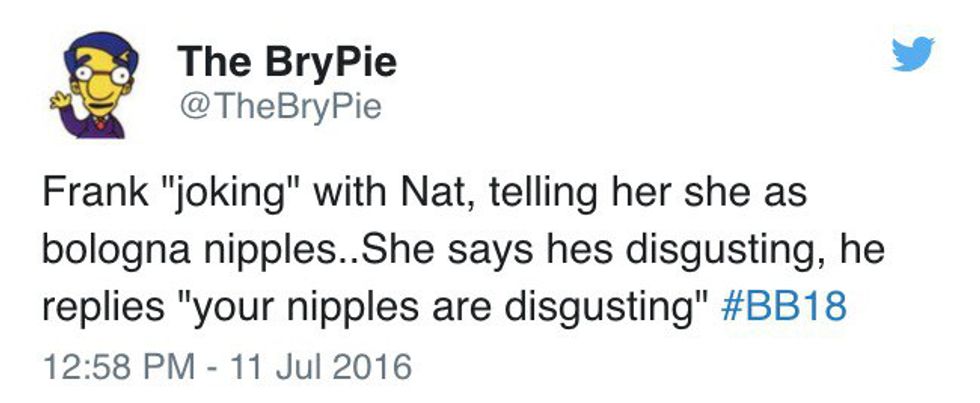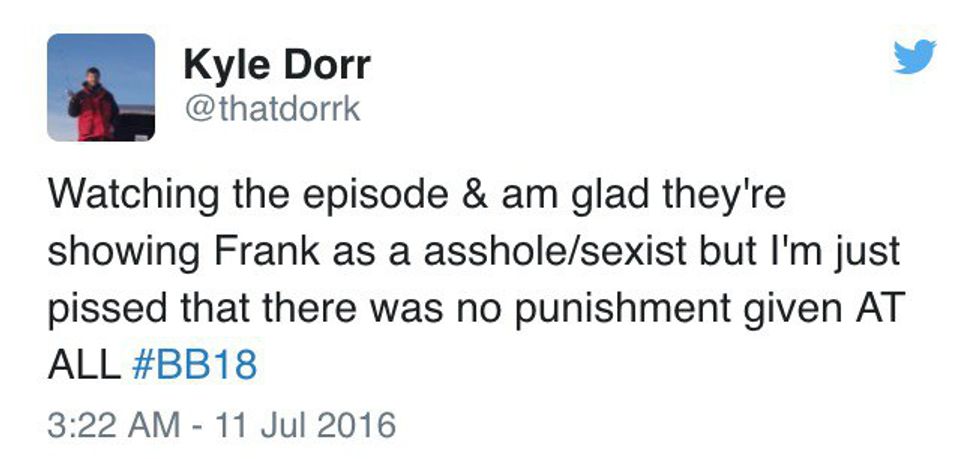On the reality TV show “Big Brother,” 16 strangers live together for a whole summer in a house equipped with over 80 cameras, which broadcast their every move on 24/7 internet live streams as they play in competitions and vote to evict each other from the house in hopes of being the last one standing and winning half a million dollars. This summer CBS is broadcasting the show’s eighteenth season, and a new group of houseguests, the return of four show “veterans,” and a twist which forced the houseguests to play in teams for the first weeks of the game have set this season apart from any before it. But this summer’s game has revealed a shocking and disturbing flaw in the show, its creators, and its contestants: the extent to which sexual harassment occurs and is enabled in the Big Brother house.
One would think that the presence of cameras and the pressure of having an audience at virtually all hours of the day would be enough to curb the sexual harassment that unfortunately can occur when more than a dozen adults are cooped up in a house for three months. These factors did not stop Frank Eudy, the 32-year-old returning houseguest and fan favorite from season 14. For weeks, live feed viewers noticed and criticized Frank’s inappropriate behavior toward the female houseguests, while the episodes that aired three nights a week on CBS consistently portrayed him as the “Nice Guy” by stitching together his best moments and choosing not to show any footage that revealed his true character.
After facing social media backlash from fans upset about the show’s apparent efforts to protect Frank’s reputation, "Big Brother" aired an episode on July 10 that featured a segment on his harassment. For the first time, fans who only watch the television show saw a side to Frank that had been visible on the live feeds for the entire season. Frank says to Natalie, “Natalie needs to be on that slop diet” as he pokes her stomach. He tells Zakiyah to pull her shirt down over her bra, before calling her a “hussy.” He repeatedly harasses Da’Vonne, from watching her in the shower and saying “Your (censored) looking right, yeah,” to calling her a slut (which makes her visibly uncomfortable despite her attempt to laugh it off). She is brought to tears when she says, “Stop hitting me on my ass, Frank,” a plea which he ignores before walking into another room to brag that he “got her pretty good.” In the Diary Room, where the houseguests give short interviews for the producers, Da’Vonne expresses her discomfort with Frank’s actions: “I don’t want my daughter to see that and think it’s okay for guys to hit girls on the butt and guys to call girls sluts…I don’t care how much I make you feel like we’re good friends, I ain’t never told you you got permission to slap me on my ass.” Back in the house, Frank apologizes to her (after being advised to do so by another male houseguest), although he defends his actions by claiming that he only treated her that way because he feels close to her, and that his “intentions were all good.”
His apology is followed up by a scene of Da’Vonne in the Diary Room once again, saying, “I have to go along with his apology because he’s running this HOH (note: Head of Household, who nominates houseguests for eviction) this week… for my game, I just smiled and told him I appreciated him coming to me, but I’m still going to get his ass next week.” This statement reveals one of the most disturbing aspects of playing a game in which one’s survival depends entirely on other people’s opinions of them: females cannot speak out against behavior that makes them uncomfortable for fear of getting on someone’s bad side, appearing overdramatic, or becoming a target in the house. When speaking to other male and female houseguests about what had happened and how uncomfortable she felt, they all suggested that she keep quiet about Frank’s harassment so as not to “blow up her game.” She reported his behavior to the producers in the Diary Room, but continued to act as if nothing had ever happened when interacting with Frank.
Following the episode’s release, angry fans called for "Big Brother" to show that they will not tolerate harassment by disqualifying Frank from the game. Some petitions garnered over 1,000 signatures, and fans continued to reach out to CBS through social media.
However, their efforts were met with unsatisfying results; Frank stayed in the Big Brother house and faced no consequences, and instead won a competition that gave him even more power in the game. He was eventually voted out weeks later, but only after the other houseguests decided that his competition wins and ability to start drama posed a threat to their games.
Perhaps the show’s delayed acknowledgement of and lack of action against Frank’s sexual harassment reveals an issue which applies to life outside of the Big Brother house. Sexual harassment is rarely taken seriously by those who have the power to stop it, and can be easily played off by those who perpetrate it. Frank’s behavior created an uncomfortable environment in which female houseguests felt unsafe standing up to his harassment, because they feared they may be thought to be overreacting or trying to create unnecessary drama that could make them a target for eviction. In this situation and in many real-life situations of sexual harassment, the perpetrator holds the power, and is able to play off his behavior as a joke and face no serious consequences while the victim must pretend not to be upset about the behavior. In a poll for the Huffington Post, 70 percent of people who claimed they had suffered sexual harassment in the workplace had never reported it.
Just because the game of Big Brother seems to exist in its own isolated universe does not excuse Frank’s inappropriate actions, nor does it justify the network’s and the producer’s silence about the situation. If CBS and "Big Brother" want to continue to appeal to a female audience and demonstrate respect for the game’s contestants, they must hold houseguests accountable for unwarranted derogatory behavior, no matter how much entertaining television it creates.


























